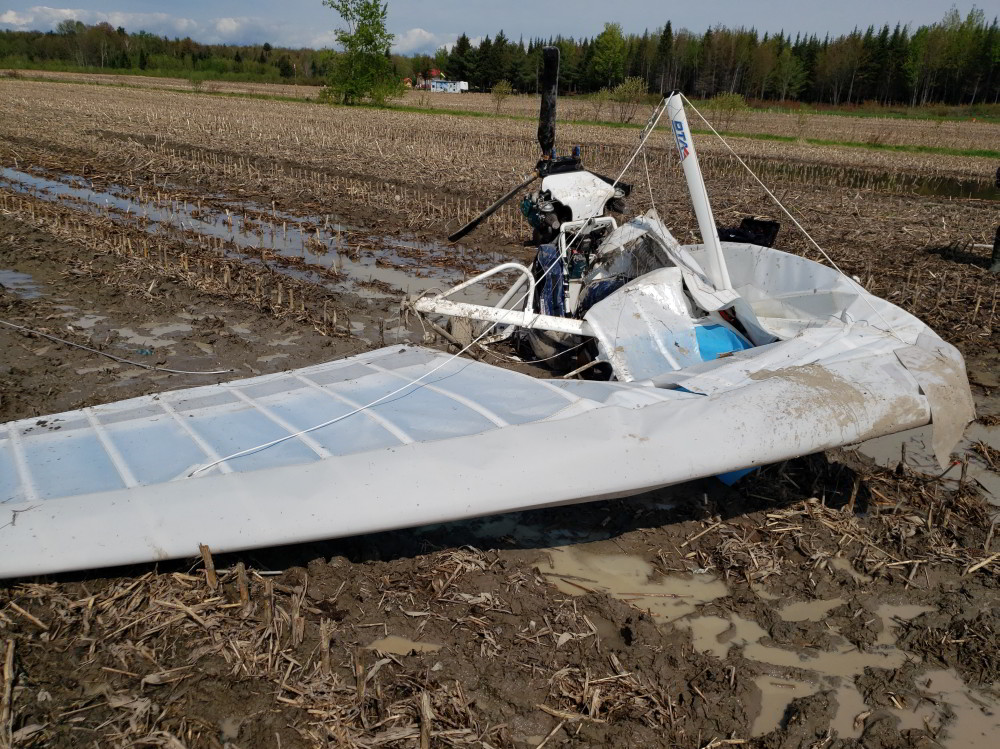Loss of control and collision with terrain
ULM Québec Inc.
DTA Voyageur II 912S (basic ultralight), C-IULM
St-Cuthbert (ULM Québec) Aerodrome, Quebec
The occurrence
On , a privately registered DTA Voyageur II ultra-light, was conducting a training flight from Saint-Cuthbert, Quebec (CCU2), with 1 instructor and 1 student-pilot on board. They trained locally and conducted multiple touch-and-go manoeuvres at CCU2. At approximately 20:00 EDT, the aircraft took off and collided with the terrain in a field adjacent to the runway. Both occupants were fatally injured. The aircraft was destroyed. The TSB is investigating.
Media materials
News release
Investigation report: May 2019 collision with terrain on takeoff in Saint-Cuthbert, Quebec
Read the news release
Deployment notice
TSB deploys an investigator following an ultralight aircraft accident in Saint-Cuthbert, Quebec
The Transportation Safety Board of Canada (TSB) is deploying an investigator to Saint-Cuthbert, Quebec, following an accident involving an ultralight aircraft. The TSB will gather information and assess the occurrence.
Investigation information
A19Q0073
Loss of control and collision with terrain
ULM Québec Inc.
DTA Voyageur II 912S (basic ultralight), C-IULM
St-Cuthbert (ULM Québec) Aerodrome, Quebec
Download high-resolution photos from the TSB Flickr page.
Class of investigation
This is a class 4 investigation. These investigations are limited in scope, and while the final reports may contain limited analysis, they do not contain findings or recommendations. Class 4 investigations are generally completed within 220 days. For more information, see the Policy on Occurrence Classification.
TSB investigation process
There are 3 phases to a TSB investigation
- Field phase: a team of investigators examines the occurrence site and wreckage, interviews witnesses and collects pertinent information.
- Examination and analysis phase: the TSB reviews pertinent records, tests components of the wreckage in the lab, determines the sequence of events and identifies safety deficiencies. When safety deficiencies are suspected or confirmed, the TSB advises the appropriate authority without waiting until publication of the final report.
- Report phase: a confidential draft report is approved by the Board and sent to persons and corporations who are directly concerned by the report. They then have the opportunity to dispute or correct information they believe to be incorrect. The Board considers all representations before approving the final report, which is subsequently released to the public.
For more information, see our Investigation process page.
The TSB is an independent agency that investigates air, marine, pipeline, and rail transportation occurrences. Its sole aim is the advancement of transportation safety. It is not the function of the Board to assign fault or determine civil or criminal liability.
